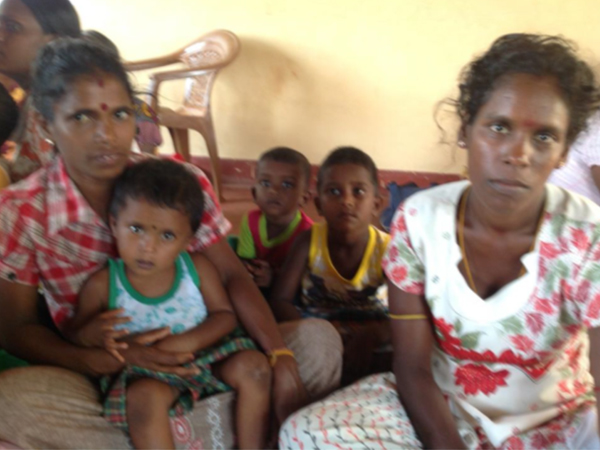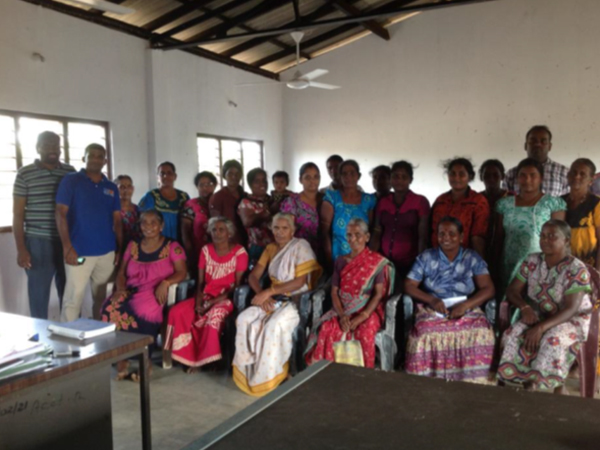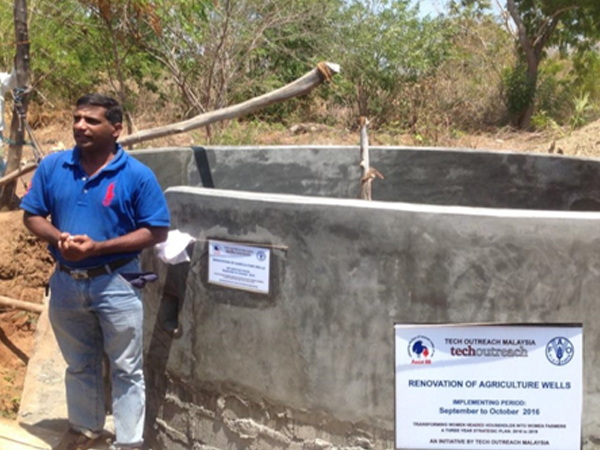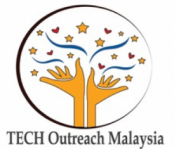- Program Name: Transforming women headed households after post war into Entrepreneurs to provide livelihood for their families
- Program Country: Sri Lanka – Northern Sri Lanka Districts of : Vavuniya, Kilinochchi, Mullaithivu
- Timeframe: 2016 – 2019
- Budget: RM 6.85 Million
About Transformation Plan
26 years of war has uprooted thousands of people in the northern and eastern regions of Sri Lanka. Approximately 15% of these households are now headed by women. These are former farmers but have lost their homes and assets, and are forced to rebuild their livelihood for their families. Most infrastructure such as irrigation systems, pipelines, wells, clean water and sanitation was destroyed due to the war.
The women, as they are now, are largely in a destitute state. They have no permanent houses, except for approximately 20% of households who have houses constructed by the Indian Government, a Japanese Foundation and World Vision. Many of these women who own houses have taken loans from banks with a high interest, to subsidise the construction of their houses, and have today become debtors with high owing to the banks.
A new social problems which have invaded some of the villages in the North, namely Vavuniya and Kilinochchi, are increasing debt due to bank loans, domestic violence, alcoholism and neglected children due to women having to work as labourers. The Indian Government has given LKR 550 000.00 to construct a house. Women have taken loans ranging from LKR 250 000.00 to LKR 500 000.00 to complete construction of their houses. This has led to high debts.
The women do not have a sustainable income to sustain themselves, their children, and sometimes their aged parents. They work as labourers with salaries less than LKR 10 000 per month. As there are no Day Care Centres, their children are left in the care of their aged parents, or with neighbours or with extended families. Some women have left their families and country to seek employment as maids in the Gulf Region.
This has led to a new social problem. The children are either abandoned or neglected and stay with family members who have their own children to care for, and who live in poverty themselves.
This “new” problem has led to psychological problems in the children, a phenomena that we see in a certain percentage of the children whom we sponsor under our “Sponsor A Child” Programme. This social ill can only be eradicated if women headed households are given the opportunity to initiate their own livelihood projects and developed to become women entrepreneurs with sustainable businesses.
And thus, with this springs the Women Entrepreneurship program to develop women entrepreneurs with sustainable businesses. The Well program to sustain the farms and water for the women is adopted.
Objective
To transform 1000 women headed households in the North and East of Sri Lanka into Women Farmers from 2016 to 2019
Its seven years since the war ended in May 2009. Having lived in Internally Displaced Camps after the war, and gone through the hardship and torture of “life in the camp,” and now displaced again in locations either unfamiliar to them, or in their original villagesnwhere their homes and assets have been destroyed…these women deserve a “break” in their struggle and strife. Women Headed Households in the North and East of Sri Lanka, especially in the Districts of Vavuniya, Kilinochchi, Mullaithivu and Jaffna need a “new lease of life.”
To empower these women with a sustainable livelihood and quality of life, partners need to consider the following initiatives to enhance the living conditions and livelihoods of these women farmers:
i). Strengthening their capacity to become self sufficient
ii). Introducing sustainable agricultural opportunities
iii). Introducing high yield, disease resistant seeds and strains of crops
iv).Improved production and productivity in agricultural produce
v). Farming techniques and access to capital for farming tools and storage
vi).Connecting women farmers to markets and facilitating integration into better value chains
vii).Developing agricultural markets for women farmers
The approach is a collaborative partnership between TECH Outreach and the INGO / Local NGO to coach and hand hold the women farmers from initiation to fruition over a 12 month period, after which an exit strategy will be planned at the end of the 24th month.
Strategies and Fundings
A Three Phase Transformation Plan is proposed for 2% of the 50 000 women headed households in the North of Sri Lanka. The plan is envisioned to transform 1000 women headed households into successful women farmers with sustainable agricultural farms over three years from August 2016 to September 2019. This will require a total funding of RM 6.85 Million over 3 years inclusive of Operating Expenses of 20% for administering the agricultural farming scheme; helping the women develop their businesses, as in knowledge transfer, skills training and business coaching; and helping the women market their produce to contract farmers and wholesalers through an integrated value chain.
RM 6.85 Million will fund 1000 women at RM 6857.00 per woman. Year 1 will transform 300 women at RM 2.075 Million; Year 2 will transform 400 women at RM 2.7 Million; and Year 3 will transform 300 women at RM 2.075 Million.
RM 1.1 Million is for the operating expenses of the Local NGOs in Sri Lanka, the Project Coordinator in Sri Lanka, and the TECH Outreach Project Team to mobilise the project.
Expected Results
To cross the poverty line of LKR 25 000 per household
• ideally earn a minimum of LKR 60 000.00 per household to help them sustain themselves. At present, with a RM 1000.00 loan for an income generation project, a successful woman earns LKR 2500.00 to LKR 3000.00 a week, which is LKR 10 000.00 to LKR 12 000.00 per month.
• transform her business to generate LKR 12000.00 to LKR 15 000.00 per week which is LKR 48 000.00 to LKR 60 000.00 per month at the end of 12 months.
The locations identified for the transformation are the areas affected by the 2009 war – Vavuniya, Kilinochchi, Mullaithivu, Jaffna. The women selected are those who fall under the bottom 20% of the pyramid in terms of household income, that is below LKR 25 000.00 household income per month, and who have skills in agriculture and fishing. The women have to meet four key criteria to qualify for the agricultural farming scheme: i). must own a piece of land more than 1/4 acre; ii) must be engaged in some form of farming at present; and iii) must be willing to become women farmers; and iv). must have repaid fully the micro credit loans taken from TECH for their income generation projects.



